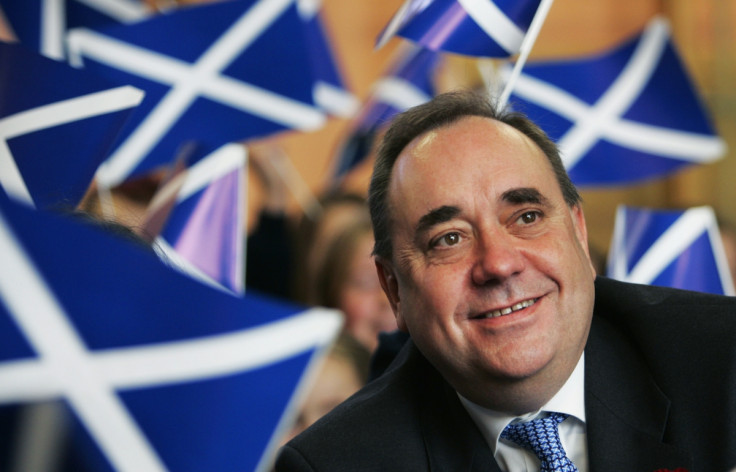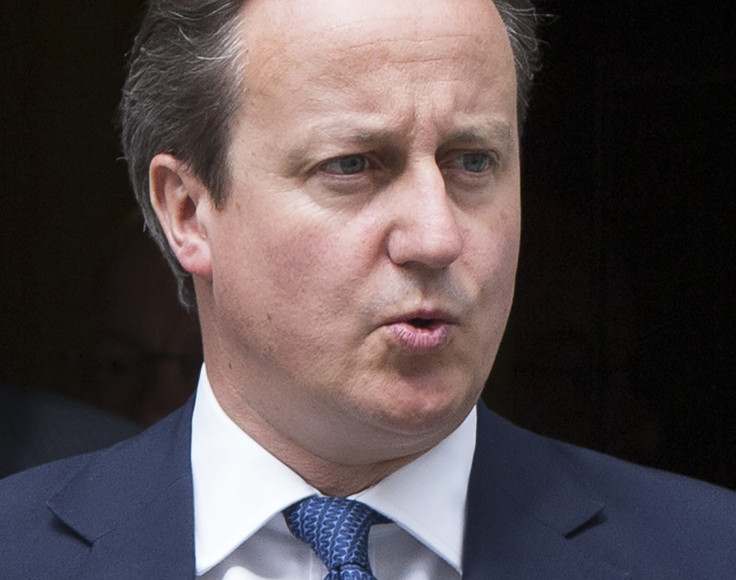Alex Salmond Plays Tory Card as Cameron Admits He Did Not Watch Big Scotland Debates
David Cameron's failure to watch live debates underlines Alex Salmond's anti-Tory independence campaign

Alex Salmond never fails to play his ace card when challenged over his plans for Scottish independence, and he was at it again in the aggressive, argumentative, and, ultimately, unenlightening final debate with Alistair Darling.
Salmond's ace amounts to the sweeping statement that his opponents are all Tories. And we all know what the Scots think of the Tories: a negative view that has only been encouraged by the revelation that Prime Minister David Cameron did not watch either of the two televised debates on Scottish independence.
The PM's spokesman said Cameron, who returns from his holiday in Cornwall on Wednesday, had watched the "highlights" of both the debates, but offered no particular reason why he had not followed the live clashes.
That has led to immediate criticisms that the prime minister is failing to engage with the most significant developments in the independence campaign, which he is leading.
Tories in disguise
So it is no wonder that Salmond routinely plays the Tory card, and did so in the debate with Darling by attempting to focus on the NHS, welfare and Trident and to accuse Darling of being, in effect, a Tory disguised as a Labour politician.
His often-repeated suggestion is that the only way to keep Tory policies out of Scotland is to vote "yes" in the referendum.

It infuriated Darling, who pointed out the Labour party did not support the government's welfare policies and the fact that the NHS north of the border is already fully devolved to the Scottish parliament.
It is an obvious trick for Salmond to pull. The Tories are so hated in Scotland that any suggestion that Labour is "in bed" with them, as Salmond claimed, can only damage the anti-independence campaign.
The trick appeared to have served its purpose with Salmond scoring an overwhelming 71 to 29 point victory over Darling according to an instant ICM poll for the Guardian.
Cameron's attitude to the debates will only add to any resentments Scots feel about English, Tory politicians.
Early evidence, however, suggested the campaign had not been swung in either direction as a result of the debates. But that still leaves a large number of voters who "don't know", or possibly "won't say" who could swing the result in the last three weeks of the campaign.
But, apart from playing the Tory card, Salmond's arguments are also marked by another undercurrent: that a vote for independence is a vote for the SNP.
The most obvious example of that was when the party launched its white paper on independence with policy statements that could have formed an SNP election manifesto, but they were presented as though they were somehow the guaranteed result of a 'Yes' vote.
It is far from impossible that an independent Scotland could return a Labour government, although a Tory administration still looks as likely as an asteroid strike wiping out Holyrood.
A bloody battle
There often appears to be an unstated assumption by Salmond that an independent Scotland would always be an SNP Scotland, implementing all the polices he has set out as a the result of a "yes" vote, but many of which, in fact, are only SNP policies.
The other significant aspect of this second bout was the aggressive, combative nature of it. It was another indication, as were the recent Europe debates between Nick Clegg and Nigel Farage, of how general election debates between the leaders might run.
The headlines said it all. It was a "Jeremy Kyle debate" with a "pumped up Salmond", "Smoking" Darling.
It was clear that the two camps had hyped up their men, telling them to get out there and fight and make it as brutal and aggressive as possible.
This is the inevitable result of debates which turn such elections into knockdown contests between individuals. All too often the detail and policy are lost amid the shouting, finger pointing and blustering.
There may be no more live TV debates between now and 18 September, but there will be plenty more aggressive campaigning. And if Alex Salmond doesn't make hay with the prime minister's reluctance to watch the debates, he is not the canny campaigner his supporters know him to be.
© Copyright IBTimes 2025. All rights reserved.





















